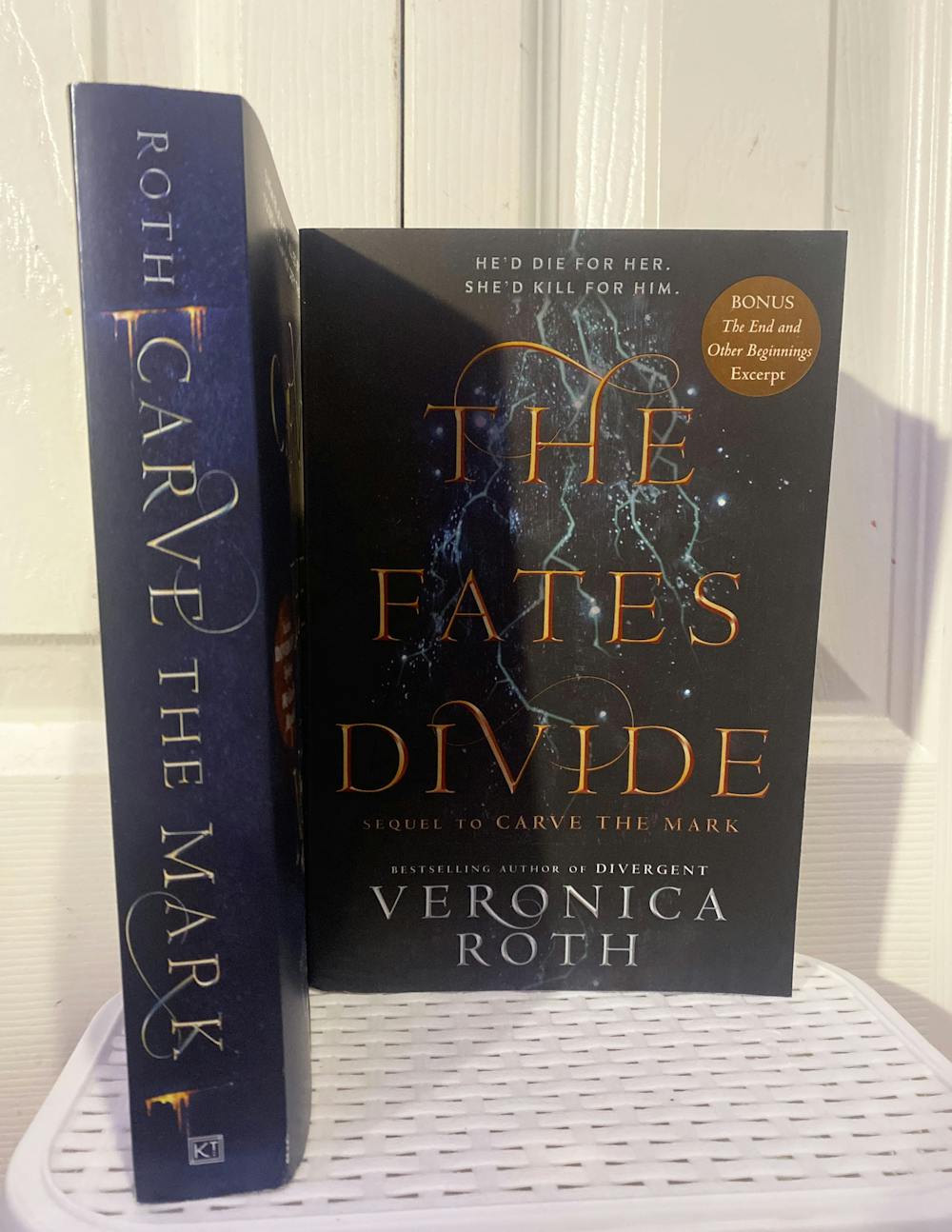Normally I get so annoyed when there are multiple books in a series. Not every single book deserves a sequel or let alone a third, so oftentimes it feels forced. In this case, “Carve the Mark” 100% deserved a sequel and I am so glad that Veronica Roth wrote “The Fates Divide.”
It is revealed early on that Akos’ fate that he will die in service of the Noavek family turns out to have been his brother Eijeh’s fate all along. The fates were mistakenly switched. Akos then experiences this internal conflict that he doesn’t know who he is without the fate. He doesn’t want his fate to define who he is anymore.
Meanwhile, Cyra does not want to be ruler of the Shotet people, but she is forced to step into that role. She wants to lead the Shotet people away from the violent reputation that they hold. This causes people to not take her as seriously because she is perceived as weak for not wanting to lash out and respond in violence. I was very immersed into this concept because I think it stays true to how people look at authority or real-world leaders.
I also thought while reading that another reason why she was not fully respected was because she is a woman. The leaders before her were her brother and her father, both men. They responded in political situations with violence to induce fear. Then suddenly this woman comes along as the new leader and is choosing not to lead in that same way. Even though her current gift made people fear her because she can cause pain, she was forced to prove herself that she was different than the leaders before her. Overtime she becomes respected, but it is something she must earn.
Eijeh becomes a bigger character in this novel. Akos is tied to Eijeh because they are brothers, so I know as the reader we are supposed to care about Eijeh. I did not feel tied to his character whatsoever. He was kidnapped and was being controlled by Ryzek in the first book. Then, in the sequel, Eijeh’s mind is half himself and half Ryzek. He sometimes speaks and acts like Ryzek because of the memory swapping Ryzek did to him, so his mind is altered.
I never felt like I really knew who Eijeh was. Maybe that is the entire point because Eijeh’s internal conflict was trying to decipher which thoughts were his own and which were Ryzek’s. Because of this, the only emotions I felt towards his character were through Akos.
On the other hand, Eijeh is an extremely important character when it comes to his current gift. He is an oracle. Oracles are the ones who can see the future and tell people their fates. The entire government listens to them. Ryzek tries to rewrite his fate by manipulating an oracle – Eijeh – and this aspect showed that it cannot be done. The fates cannot be rewritten.
However, the overarching theme of this duology is that fate is not a cage. The characters are so focused on their fates to where it defines who they are which eliminates free choice. Through the main characters Cyra and Akos, they prove that fate doesn’t eliminate choice. Akos finds out that he doesn’t have a fate. His character becomes free from this feeling of entrapment.
The character development with Akos was by far my favorite. His character focuses more on choice which is essential to identity.


The Slate welcomes thoughtful discussion on all of our stories, but please keep comments civil and on-topic. Read our full guidelines here.